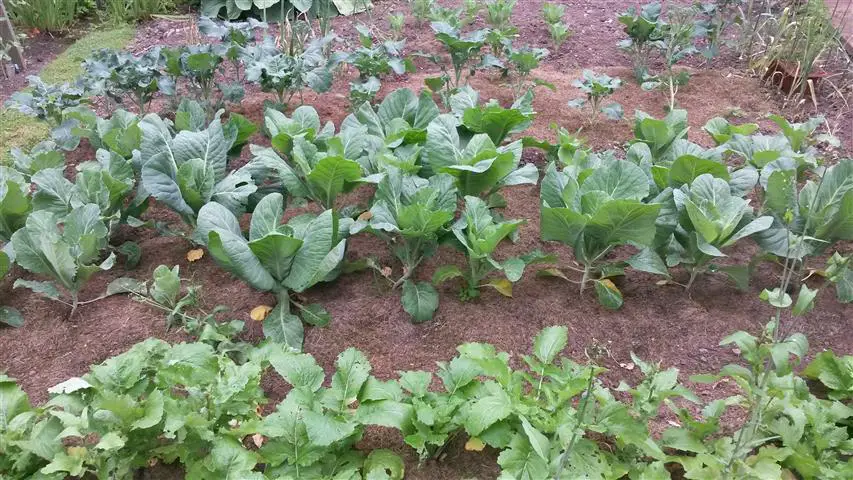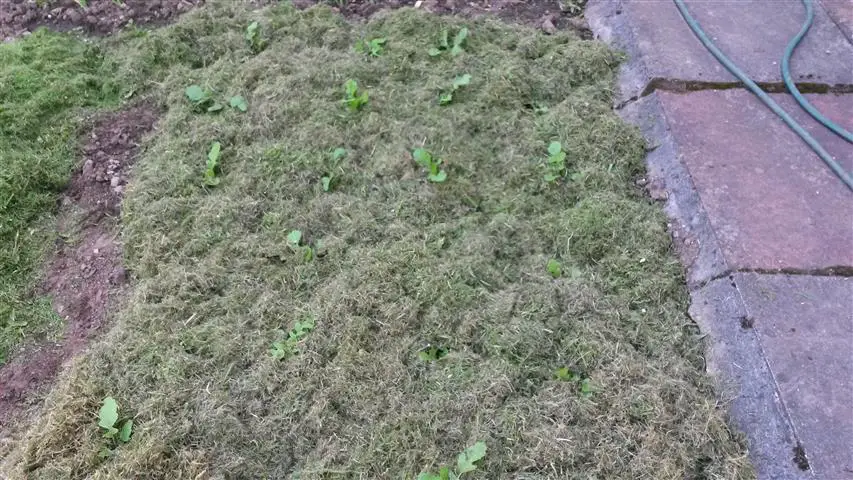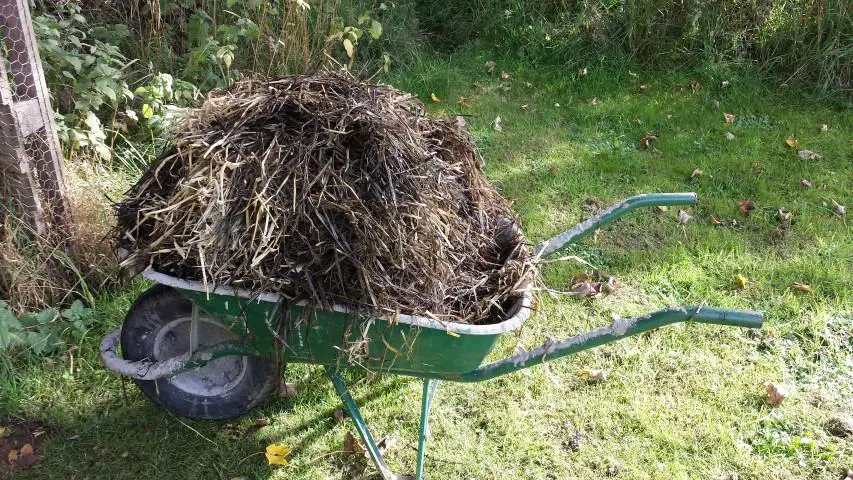Using Grass Clipping As A Garden Mulch
Ok, I’ll admit that this may not be the most exciting topic in the gardening world – however the results of mulching with grass clippings with regard to weed control, positive recycling and improved crops are actually quite exciting – if you’re into that sort of thing 🙂
I have quite a large area of grass to cut, and especially in the spring time with the early growth spurt this means that I have a fair amount of grass to dispose off. Normally of course this would not be wasted, but is added to the general composting pile as a rich source of nitrogen and composting energy to the heap. However even this can get a little overwhelmed in the spring, and the danger with too much grass on the compost heap is that if you do not turn it regularly then you will end up with a solid mat of grass choking the compost.
This grass mat does not decompose or compost very well, or at least I should say that it takes a while – a full 2 years or more to become compost.
How to mulch with grass clippings
To mulch with grass clippings, simply empty out the grass container from the mower and use them to mulch around the veggie patch. Also sometimes called layer composting (though in fact this is a slightly different process) it is an extremely effective way to benefit your plants, and has many benefits in general – just check out the list below.
- Mulching between your vegetables with grass clippings restricts the growth of pesky weeds – an ongoing battle for every gardener! Any weeds that do manage to poke through are easily lifted from the soil.
- The thick layer of grass cuttings helps to keep the soil around the base of the plant moist, reducing the need for constant watering – thereby saving water and your precious time!
- As the grass decomposes it adds nutrients to the soil and improves the soil conditions.
- The mulch encourages worms which will pull the decomposing grass down into the earth and improve your soil structure.
- Mulching early in the season will help protect young plants from an unexpected late frost.
As you can see, there are many benefits to mulching around your vegetables with grass clippings 🙂

How to lay your mulch:
I hesitate to even include this section – it’s just too simple, but what they heck…
Simply collect your grass clippings form the collecting basket, or rake them into a pile. Spread them out between your plants at least 2 inches thick, but preferably 3-4 inches for best effect. This may well drown out young seedlings for a while but as long as you do not cover them entirely and let the sun do it’s thing – they will soon rise above the mulch as you can see from the picture above.
Different Mulching Materials:
Mulching can of course be done with many other materials besides grass clippings. Shredded paper makes good mulching material, but do not use any paper with color pictures as the ink contains chemicals that may well be harmful.
can of course be done with many other materials besides grass clippings. Shredded paper makes good mulching material, but do not use any paper with color pictures as the ink contains chemicals that may well be harmful.
Paper can also be laid out without shredding as a weed suppressant cover under grass clippings or other mulching material. The worms in particular seem to love it and so the whole nutrient-process gets an added lift as the worms do their thing.
Composted leaves, perhaps gathered the previous Fall makes excellent mulch and offers the root-base excellent protection against hot dry weather by retaining moisture at ground level.
Cardboard boxes can also be cut up and laid down as a mulch – but do beware of and remove any staples to prevent future pain and grief as an old rusty staple sinks into your hands as you are working the soil – could ruin your whole day!
Shredded bark or bark chippings can be used, although they do not carry the same composting advantages as paper or grass.
A weed suppressant membrane (the woven membrane lasts longer) can be used effectively to stop weeds and retain moisture – but again it has no composting benefits.
Slug Control:
I have to mention a downside to grass mulching, and that is the dreaded slugs! Especially at the beginning of the process, you may well find that slugs are attracted by the grass clippings. After a short while however this is not so much of a problem, and the slugs can be dealt with in the normal manner by various organic pest control methods.
Also watch out for matting and the possible build up of mold with grass mulching. Long periods of sustained wet weather can encourage mold that may infect your plants, and slugs that will feed on them!
That’s it for this post on grass composting – happy planting!



